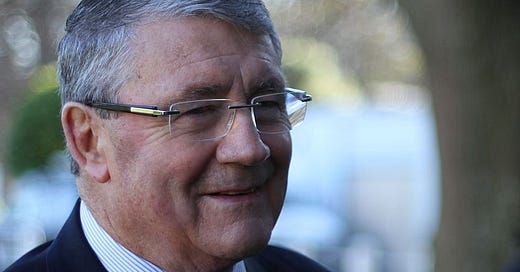Economic development - a casualty of Luxon's cabinet reshuffle?
Is Nicola Willis' new Economic Growth portfolio a new direction or just a rehash of the unimaginative neoliberal past?
On Sunday Prime Minister Christopher Luxon announced his cabinet reshuffle.
On the surface, Luxon’s decision to hand the economic development portfolio to Nicola Willis and rename it economic growth looks like a minor change.
Political journalists, such as Claire Trevatt (2025), interpreted this as a promotion for Willis as she will now have greater sway and oversight over the economy, overseeing both economic mega-ministries, the Ministry of Business, Innovation and Employment (MBIE) and the Treasury1.
But at the level of ideas, it could signify something different - a move back to empowered version of the Treasury which believes only it, and the ‘market’ should have anything to do with economic policy. As the Forth Labour Government (1984-90) instigated a major programme of radical neoliberal reforms, Treasury increased its power and influence over government, marking the ‘homework’ of other ministries, suggesting everything become “contestable” - apart from its own advice.
As a matter of philosophy, National was never that keen on the notion of economic development. Such a policy implied the state should have a role in the development of the economy. The economic ‘drys’ in the National caucus, influenced by the economist Milton Friedman and the slogan “all economic regulation is stupid”, reject the notion of ‘economic development’ out of hand.
A bit of history
In the leadup to the 1999 election, the Alliance published a policy paper called Partnership 2000 which subsequently helped guide a new approach to economic policy under the Labour/Alliance government. This paper called for the establishment of a Ministry of Economic Development (MED) to “take over the economic development policy functions of Treasury and implement a range of active economic development policies.”
Part of the motivation for the new ministry was to develop an alternative source of economic advice to Treasury. Many New Zealand Prime Ministers and Finance Ministers, including Gordon Coates and Norman Kirk, had created their own ‘kitchen cabinets’ of independent economic advisers for similar reasons. Taking office as the Minister of Economic Development in December 1999, Alliance Leader Jim Anderton also sought his own economic counsel, employing the economist John Lepper as a key member of his ministerial staff.
As Anderton noted in his speeches at the time, active economic development represented a clear break from the neoliberal policies which had dominated economic thinking since 1984.
Keep reading with a 7-day free trial
Subscribe to Joe Hendren to keep reading this post and get 7 days of free access to the full post archives.




